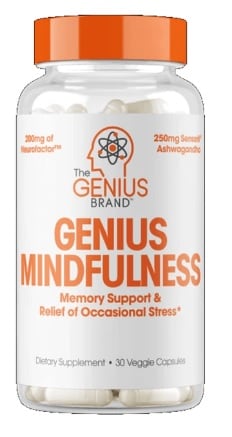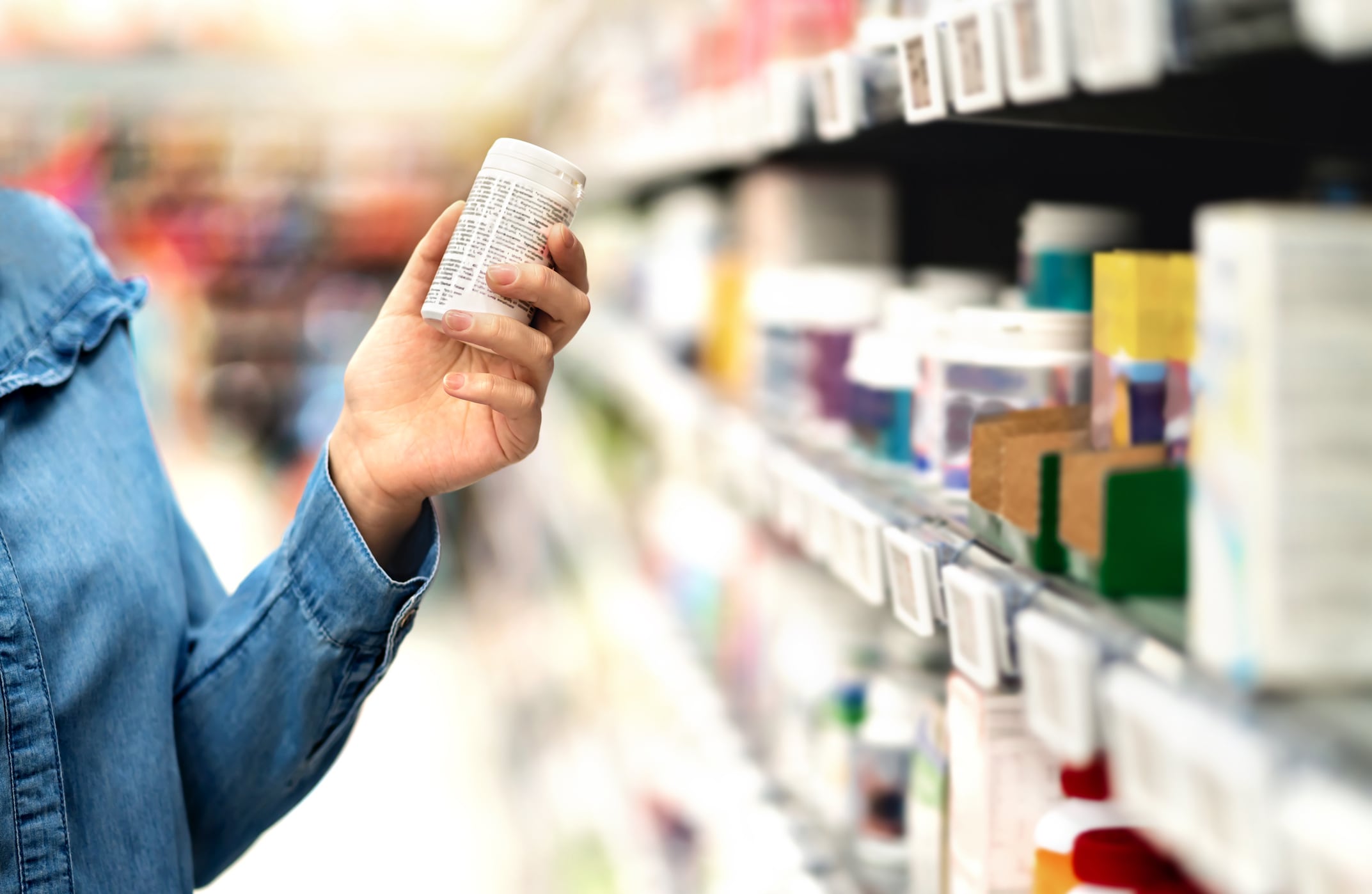Me mentality
After spending the past two years putting their own needs on the back burner to prioritise public health and safety, consumers around the world are now emerging from the pandemic eager to re-focus on themselves.
Consumers are also ready to make some inward changes as part of the 'new normal'. And to help encourage new routines, brands can lean on trial periods to make it easier for consumers to begin to act on the idea that they do not need to be the same person they were in the past.
One supplements brand taking this approach is Hey Nutrition, which is encouraging consumers to try its Ashwagandha products with a 60-day money back guarantee.


"Consumers want to quickly move forward and make up for lost time, diving into their preferred pursuits with gusto, seeking personalised products and services that match their skill level," Mintel explains in its report.
"At the same time, consumers will look for ways to become more resilient to change as they prepare for the uncertainties of the future. Demand for mental health and wellness-focused products will grow as consumers look to understand their blind spots and actively work to overcome them."
Mintel says brands can address this desire for clarity about the future by tapping into the "spiritual practices" or "moral beliefs" that consumers follow. One such spiritual practice, for example, might be the 'mindfulness' craze which 'The Genius Brand' has tapped into with a supplement named 'Genius Mindfulness' which claims to to support memory and control stress.
Power to the People
This trend, which is all about putting the consumer at the centre of innovations, might seem a lot like the 'me mentality' trend but this focuses on enabling the consumer to become the co-creator of products in order to allow them to feel creative, prioritised, and part of the brand's community.
Popular social platforms like TikTok prioritise self-expression, driving consumers to develop and showcase their creativity. Now brands are harnessing this creative spirit by inviting outside perspectives into their product development processes. To showcase their commitment to collaboration, many brands are emphasising creative positions within their organisation that are filled (even if symbolically) by celebrities, influencers, kids or everyday product users.
Companies are leveraging emerging social platforms to interact with brand champions and gather information on how their products are used, perceived and talked about. As a result, increasingly frequently, products are being advertised as having been created as a direct result of consumer feedback and the consumers themselves are being included in the marketing. Some advertising campaigns have even started to utilise consumers' own footage or social media content.
41% of UK consumers agree that direct-to-consumer brands have a more personal connection with customers than traditional brands.
"For consumers, a new era of social signalling will emerge as they feel more intertwined with the ethics of the brands in which they’re invested. What people wear, eat and drive won’t just signal status, but will be a detailed account of their attitudes and beliefs," says Mintel.
"Advances in technology that allow for extreme personalisation across categories will leave less room for mass market products to drive collective appeal. When brands find themselves navigating controversial issues, they will have a roadmap to follow, guided by the activist consumers they serve.
Hyper fatigue
The third trend comes as a result of consumers moving from crisis to crisis in recent years and therefore feeling stretched in many directions while also being "bombarded" with media stories and digital content.
"The pandemic, rising cost of living, energy crisis, geopolitical unrest and the climate crisis have all taken their toll on consumers and will continue to do so, causing fatigue and a sense of being overwhelmed," explains Mintel
The pandemic caused uncertainty, stress, financial issues, and major life shifts. At the same time, reduced FOMO (‘fear of missing out’) and being forced to slow down gave some consumers the chance to re-evaluate their lives.
Technology has also grown to play a large role in consumers’ lives, and some are concerned about how increased usage impacts their lives, with many seeing it affecting their mental well-being negatively and wishing to reduce their screen time.
71% of UK consumers say managing diet/exercise is important to manage stress
62% say daily rituals are an important way to lift their mood.
55% say they spend time outside to tackle stress
"Consumers will find meaning, solace and a restored sense of purpose in reconnecting with their surroundings, their communities and themselves. Over the next two years, expect to see a polarised response to relaxation and unwinding in the wellness space; retreats that offer a digital detox and the opportunity for consumers to immerse themselves in nature will appeal to some, while others navigate their well-being through wellness apps.
"...While mental health led the wellness trajectory, particularly after the pandemic, moving forward, consumers will want to discover more about how to protect their minds and bodies, developing a curiosity for spiritual and ritual practices as well as emerging wellness solutions that are on the horizon."
The demand for convenient options and interactive experiences will only continue to grow, meaning that technology will continue to play a vital and influential part in consumer experiences.

Vitamins brand 'Ritual' has clearly tapped into this trend with its brand name. This company claims all its products are traceable with a visible supply chain so the consumer "knows what they're putting in their body".
The brand states: "We source key nutrients carefully, in ideal and high-quality forms. And true to our Made Traceable™ promise, we make it our mission to lift the curtain to our formulation process—showing you how we source our ingredients, why they're there, and how the finished products are verified."
This promise plays into the next trend.
International localism
With so much global uncertainty, Mintel's analysts say there will be a greater movement to protect local resources and boost local business. This is a hangover from the pandemic, but also a reflection of consumers’ changing attitudes towards what’s important to them—a reconnection with ‘local’ is also a way for consumers to protect themselves financially, environmentally and psychologically, and feel that they are giving back in some way.
The report says: "While taking inspiration from local favourites is still popular, brands are increasingly linking localism with sustainability and transparency. Many consumers associate local products with more sustainable practices, leading to retailers cultivating that connection by playing up the shorter distances their local produce has to travel. Alongside that, brands are being more transparent about where and how their products are made by letting consumers look behind the scenes via livestreams, social media posts and QR codes. ‘Local’ increasingly means ‘beneficial to the local community’."
Over the next two years, consumers will respond instinctively to home-grown innovators and brands that stamp their authenticity on the items they sell. With this in mind, Mintel says both international and local brands could benefit from collaborating with local artists or coming up with schemes to support the specific needs and behaviours of local communities.
45% of UK consumers say they prefer to be involved with institutions/ companies that promote equality.
"To do this authentically, brands will need to let local communities and creators not only participate in, but also take charge of projects," says Mintel.
"‘Localism’ will come to mean supporting communities where the product is manufactured rather than where the consumer is located. Indeed, empowering communities across the world will play a significant role in consumers’ interest and brand loyalty. Global brands can capitalise on this by highlighting how their local stores, employees or profits are being used to better each of the communities in which they are present."
As the impact of global warming will increasingly be felt, more consumers will be scrutinising whether global brands take their local commitments seriously. This is relevant with supplements such as botanicals which are traditionally grown elsewhere in the world.


